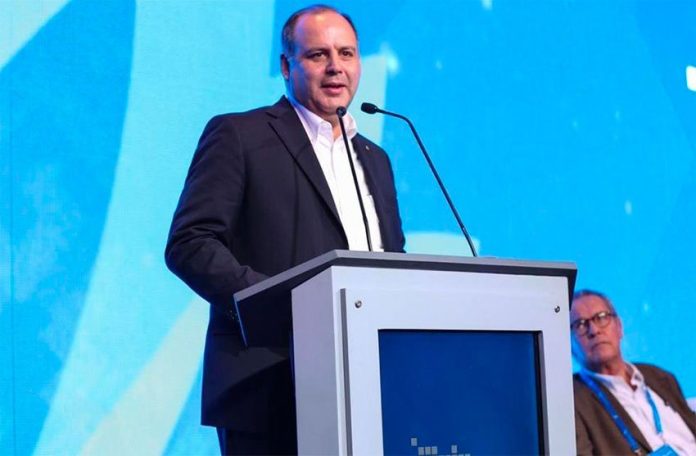Recent public policy improvisation on the part of the incoming federal government will have an annual negative economic impact equivalent to the entire cost of the Maya train, the head of an influential business group said yesterday.
Mexican Employers Federation (Coparmex) president Gustavo de Hoyos made the claim, which translates into a cost 120 to 150 billion pesos (US $5.9-$7.4 billion), while speaking to reporters after attending a business summit in Guadalajara.
“The decisions and announcements of president-elect [López Obrador] and his team, in general terms, have cost [Mexico] one point in its country risk [rating]. That means that servicing external debt each year will cost an additional amount that is practically equivalent to the total cost of the Maya train,” he said.
That’s the cost, De Hoyos added, of making announcements that seek to make headlines but are not well thought out.
Late last month, the business leader led private sector criticism of López Obrador’s decision to cancel the new Mexico City International Airport following a public consultation, declaring that it would be “the biggest waste of public resources in the history of the country.”
The president-elect has since announced that another referendum will be held this weekend on the Maya train, a proposed new oil refinery and a range of planned social programs.
Some analysts have warned that making important decisions based on public votes creates uncertainty in the economy that has the potential to hurt investment.
Proposals from federal lawmakers representing López Obrador’s Morena party have also had an impact on markets.
This week, the presentation of a bill in the Senate caused two major mining firms to suffer double-digit losses in the value of their shares while earlier this month, a proposal to curb bank charges sent bank stocks plummeting and caused the Mexican Stock Exchange’s benchmark IPC index to suffer its biggest single-day decline since August 2011.
De Hoyos commented: “Unfortunately in recent weeks, and it has to be said with clarity, one by one we’ve been finding messages that point to [the new government taking] another [economic] direction.
“We’re finding that the message of the [incoming] government is one of clear improvisation of public policy proposals and clear ignorance of the effects they have . . .”
The Coparmex chief said the incoming government has a great opportunity once in office based on the electoral legitimacy it obtained in the July 1 election. López Obrador won in a landslide and the Morena-led coalition now has a majority in both houses of Congress.
But he added that it should be capitalized upon by carrying out projects and programs that have been thoroughly analyzed.
With regard to legislative proposals from individuals or small groups of Morena lawmakers that have hurt the market and caused a loss of confidence, de Hoyos said:
“We hope that these kinds of events don’t repeat because in the end, it’s not the business sector that pays but all of Mexico.”
Source: El Financiero (sp), Milenio (sp)
